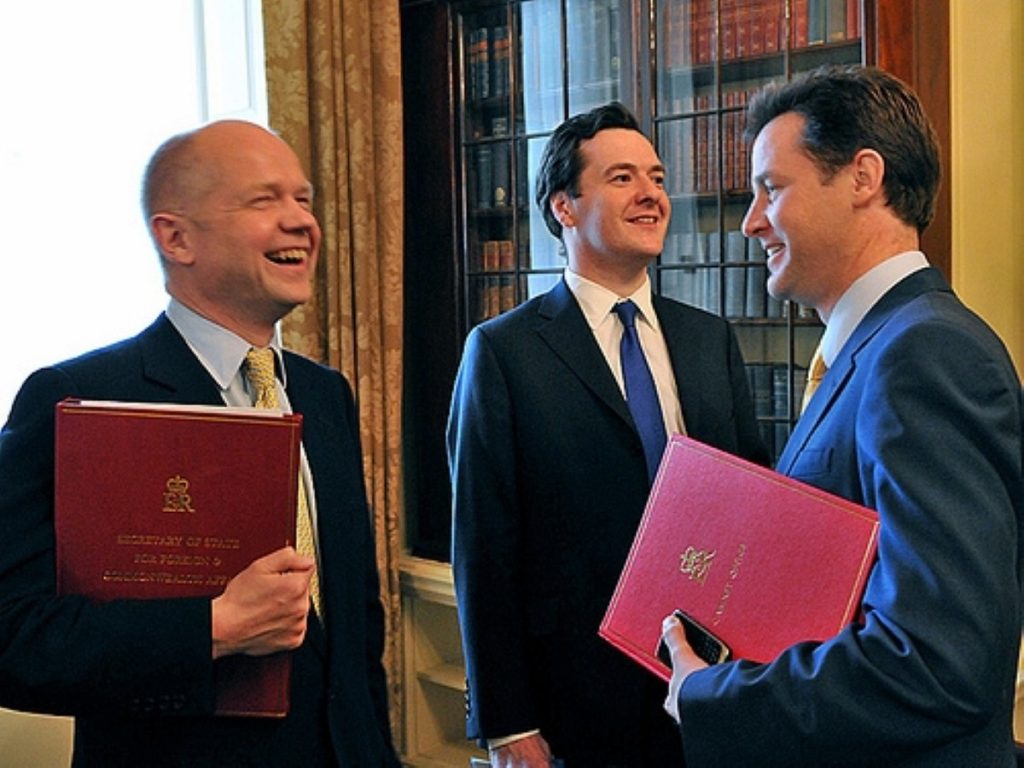Coalition Cabinet begins new era
David Cameron and Nick Clegg’s new Cabinet has met for the first time, as the Conservative-Liberal Democrat coalition prepares to implement its agenda for government.
Vince Cable, David Laws, Chris Huhne and Danny Alexander joined deputy prime minister Nick Clegg in Cabinet as all parties began acclimatising to Britain’s new political landscape.
In an expected move Mr Cameron pushed through the five per cent pay cut for all ministers, which was agreed to by the Cabinet.


“Both the prime minister and the deputy prime minister emphasised their commitment to work together and highlighted the strong shared agenda,” a No 10 spokesman said.
“The chancellor [George Osborne] updated the Cabinet on the economy, stressing the priorities of tackling the deficit, the importance of demonstrating the UK is open for business and banking reform, where he would be working closely with the secretary of state for business [Vince Cable].”
The Cabinet also discussed Afghanistan, the parliamentary timetable and broader foreign policy discussions.
It was reported that Mr Cameron was forced to rebuke former chancellor Ken Clarke, who is now the justice secretary, for talking.
“It was great. We had a really constructive meeting,” education secretary Michael Gove said afterwards.
He said there were “no hatchets to bury”, adding: “The Cabinet worked very well together.”
Work and pensions secretary Iain Duncan Smith said that the main priority was “to get the economy back on track” and gave an upbeat assessment of the mood.
“Everybody seemed completely focused and unified in the direction we’re going which is getting Britain back on track again. Today was excellent. It’s like we’ve been working together for years.”
Culture, Olympics, media and sport secretary Jeremy Hunt acknowledged that getting through the “difficult challenges” faced by the government presented a big challenge.
“The encouraging thing is I think there is an understanding across all parts of the government that we’ve got to take very very difficult decisions,” he said.
Only a handful of the remaining ministerial posts were allocated on Thursday, with the bulk now expected on Friday.
More Lib Dem MPs are set to join the government. It was a key condition of the coalition agreement that Britain’s third party be given seats in all departments.
Ministerial appointment announcements
The prime minister spent the afternoon touring government departments as details of ministerial appointments slowly filtered through.
He praised Vince Cable as an “absolute star” at the latter’s Department for Business, Innovation and Skills, before moving on to the Home Office where he showered identical praise on new home secretary Theresa May.
“We are a coalition government. This is a new thing for our country. But I think the really positive thing about it is it wants to be a government for five years,” he said.
“We’ve been too short-termist. This gives us a huge opportunity to plan and legislate and regulate for the long-term.”
Get to work, Cameron tells civil servants
Yesterday evening prime minister David Cameron chaired the first meeting of the newly-established national security council.
The move, which formed the cornerstone of the Tories’ national security strategy, saw the appointment of Sir Peter Ricketts as national security adviser.
Mr Clegg was also present for briefings on the political and military situation in Afghanistan and on the wider security situation.









